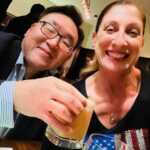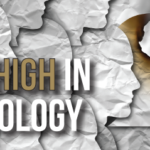We are not the only physicians who help their patients; however, I believe that it is the quality of our patient interactions that sets rheumatology apart. For example, consider the specialties at the lower end of the Medscape happiness scale; oncology and neurology. These two disciplines tackle some of the most daunting and refractory conditions in medicine. It may come as no surprise that dealing with these maladies on a daily basis may wear down even the happiest and most optimistic physicians.
Money Isn’t Everything
My informal survey of friends and colleagues observed that most individuals guessed that the happiest doctors would be those with the highest incomes. Well, money does not buy happiness. This observation was noted by one of the founders of the field of behavioral economics, the Nobel Laureate Daniel Kahneman, PhD, professor emeritus of psychology and public affairs at Princeton University in Princeton, N.J. According to Dr. Kahneman’s research, when people consider the impact of any single factor on their well-being—such as income—they are prone to exaggerate its importance. This tendency is referred to as the focusing illusion. In many of his experiments, he has demonstrated that the effect of money on creating long-term happiness is illusory.
Elizabeth Dunn, PhD, associate professor of psychology at the University of British Columbia in Vancouver, and Michael Norton, PhD, associate professor of business administration at Harvard Business School in Boston, have studied the role of money in creating happiness. They found there is a measurable connection between income and happiness; people with a comfortable living standard are happier than those living in poverty.5 But here is the catch: Once the comfortable standard is achieved, additional income doesn’t buy any additional happiness. The magic number that defines this “comfortable standard” varies across individuals and countries, but in the United States, it seems to fall somewhere around an annual income of $75,000. Using Gallup data collected from almost half a million Americans, researchers at Princeton found that higher household incomes were associated with better moods on a daily basis—but the beneficial effects of money tapered off entirely after reaching the $75,000 mark. This sum is far below the average annual salary of American rheumatologists, which is about double this amount.
Get That MRI?
Back to my patient. She had her hip MRI and it demonstrated a fair amount of boggy synovitis and some erosive disease affecting the hip. I proposed some changes to her treatment regimen, and we will see how she fares over the next few months. I hope that my encounter gave her hope that she can get better. Conversely, her sense of confidence in my skills provided me with a heightened sense of well-being and happiness.



